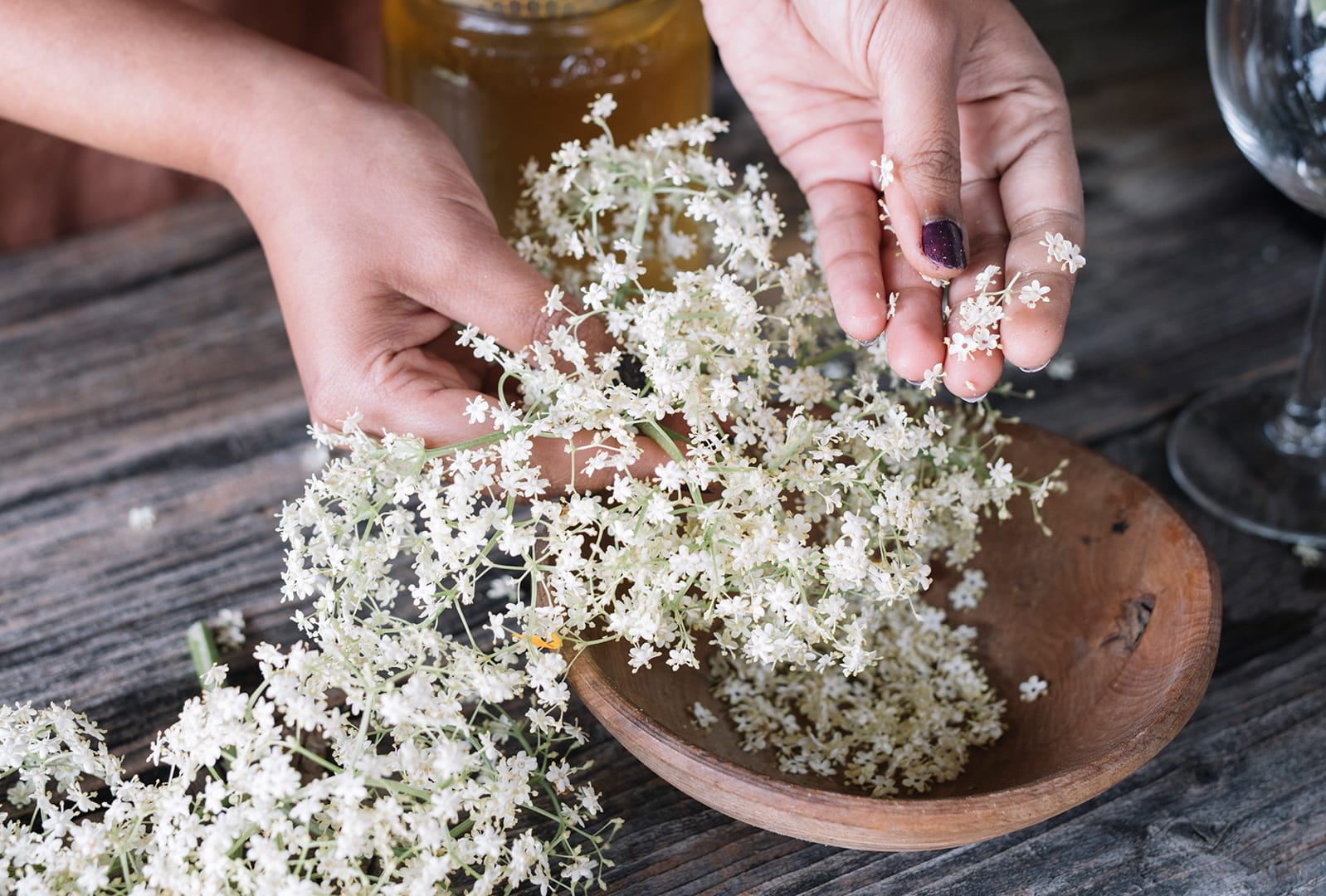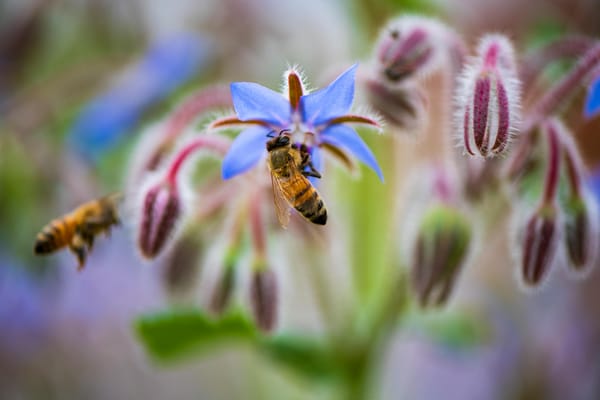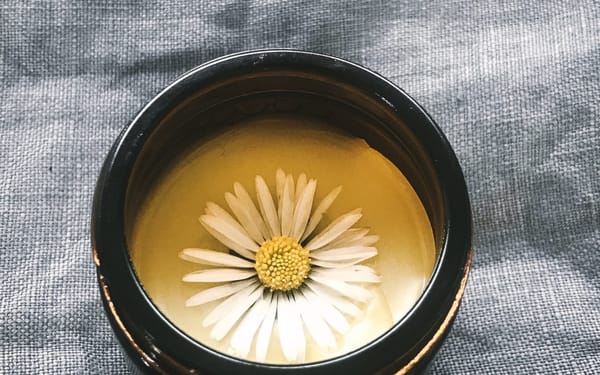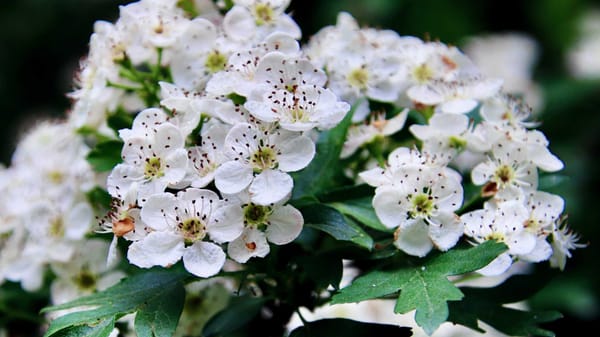From elderflower cordial to tea, here are three ways to use these abundant, fragrant flowers at home
Kim Walker & Vicky Chown are both trained medical herbalists who run the herbal educational company Handmade Apothecary
The first of May signalled the official start of summer, but did you know that in folklore summer was marked by the opening of the first elderflower all the way until the last elderberry?
The elderflowers are just about opening and their luxurious, creamy scent is recognisable from the popular drink many remember from their childhood. The elder tree has several old medicinal uses and was once such a popular medicine that a 17th Century German herbal dedicated to the elder contained hundreds of recipes.
Unfortunately many of them are to do with purging the body by compelling the patient to vomit and are not recommended now!
However, a few folk remedies have remained popular and effective and it has been used as:
• An insect repellent (the pungent crushed leaves applied to the skin),
• For helping hay fever symptoms (drink an infusion of the flowers mixed with nettle leaf),
• As a remedy for treating sore throats, coughs, colds and ‘flu (the elderflower or elderberry syrup)
• A facewash to even out skin tone (use a cooled infusion of the flowers)
• A delicious summertime cordial.
Here's a recipe for you to try at home:
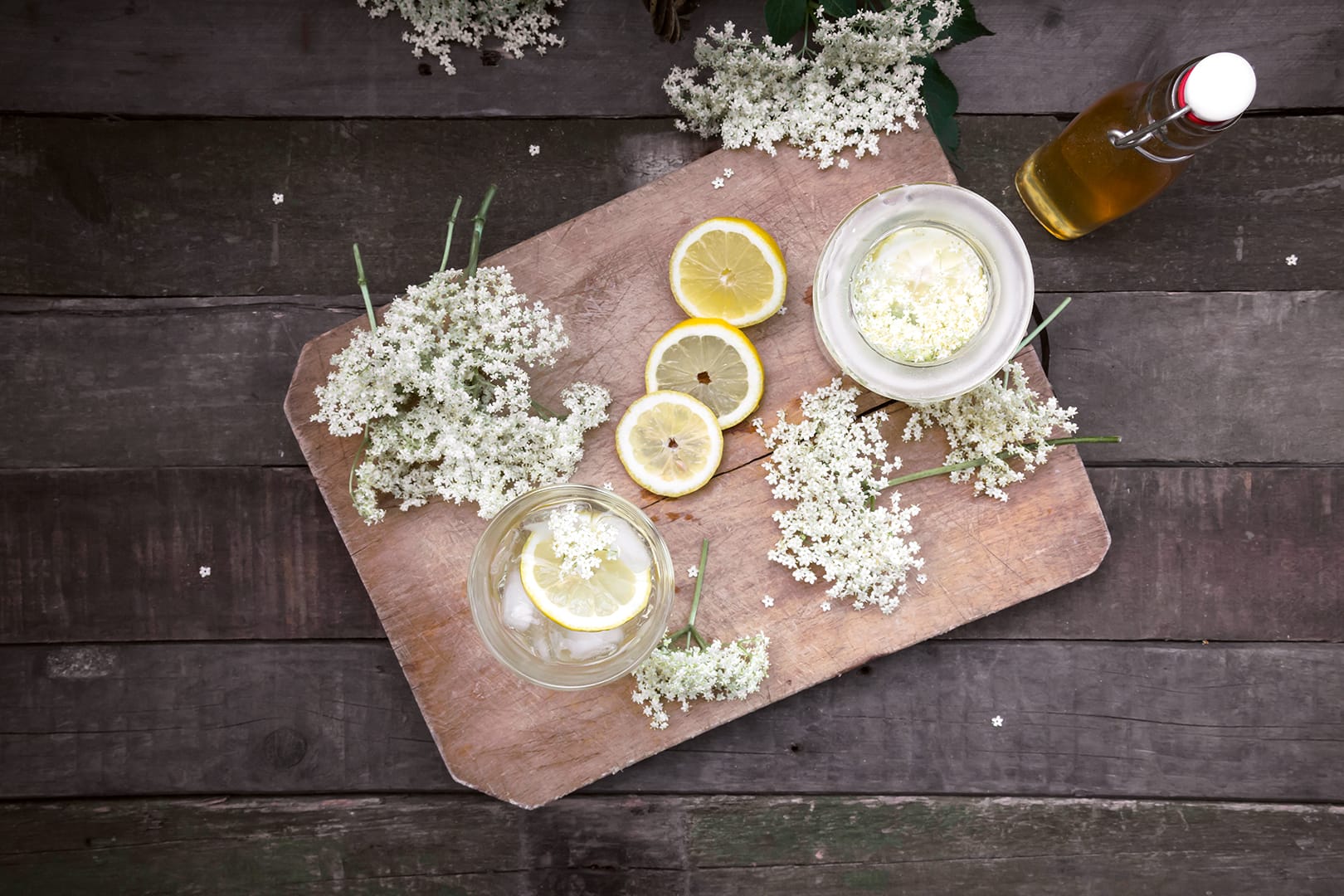
Elderflower Cordial
This delicious cordial epitomises summer. Use in refreshing cold drinks or add to hot water to make a warming brew for winter ills.
What You Need:
· 1kg unrefined sugar (caster or granulated)
· 20 heads of fresh elderflowers (or enough to fill a large colander)
· 30g citric acid
· finely grated zest and juice of 2 lemons
How to Make:
Pour 1.5 litres water into a large saucepan and bring to the boil, then add the sugar and stir until dissolved. Bring to the boil again, then reduce the heat and simmer for 10-15 minutes, until thickened to a syrupy consistency. Remove from the heat.
Remove the flowers from their stems with a fork, then add the flowers, citric acid, lemon zest and juice to the sugar syrup and stir to combine. Transfer the mix to a large jar or glass bowl and cover with a clean cloth. Leave for 1 day, stirring once or twice.
Strain the mix through a muslin lined sieve into a bowl, and then pour into sterilised bottles, seal, label and date.
How to Use:
Mix 1 part cordial to 3–4 parts still or sparkling water. In the winter, try it with hot water.
SHELF LIFE Keep (unopened) in a cool, dark place for up to 6 months. Once opened, keep in the fridge and use within 2 weeks. Alternatively, freeze the cordial in ice cube trays or plastic bottles for up to 1 year (defrost before serving).
MORE INSPIRATION
READ The Handmade Apothecary (Kyle Books)
DISCOVER Recipes and more at handmadeapothecary.co.uk
FOLLOW On Instagram at @handmade_apothecary
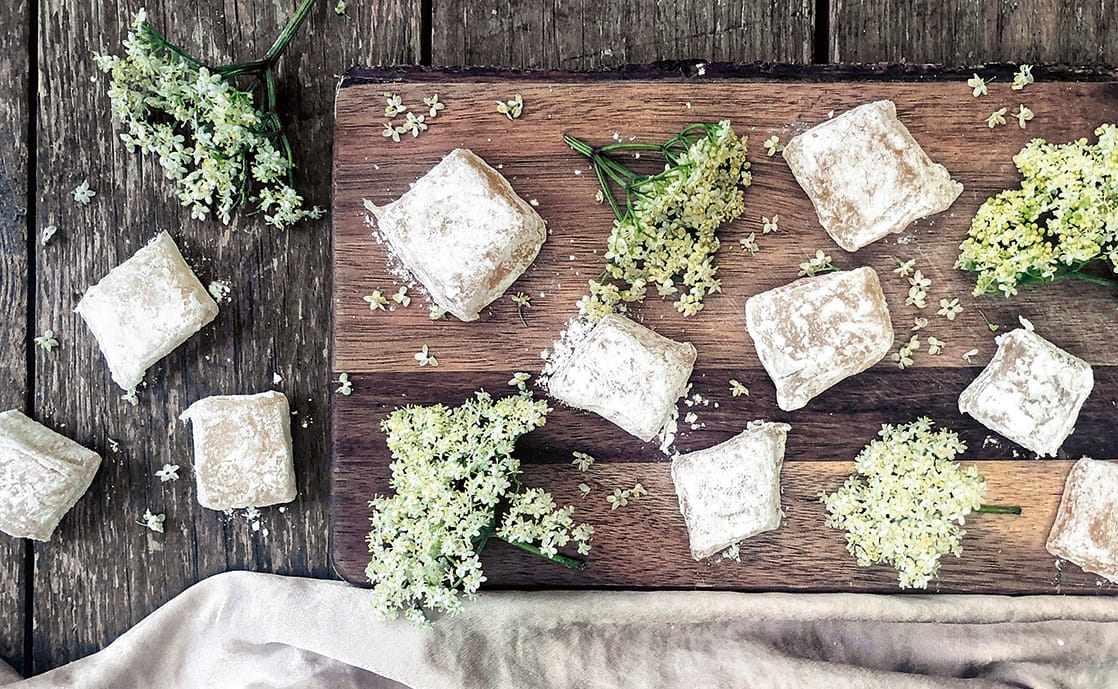
Elderflower Turkish Delight
Fern Freud first tried elderflower Turkish delight after reading John Wright’s recipe and she hasn’t stopped making it since.
My recipe is made in the traditional way, so doesn’t include any gelatine. It’s soft, squishy and delightfully summery! Once you’ve got the hang of it, why not try this recipe with lilacs or lavender flowers instead?
MAKES APPROX. 40 PIECES
What You Need:
20 elderflower heads
4 tbsp lemon juice
750g white sugar
100g cornflour plus 2 tbsp, for dusting
Coconut oil, for greasing
2 tbsp icing sugar, for dusting
How to Make:
1. First, snip the flowers from the elderflower sprays from their stalks and put the loose flowers into the centre of a clean muslin cloth. Gather the sides of the cloth and tie with food safe string, so the flowers are contained. Make sure you leave a long piece of fabric or string to hold them while they’re suspended in the pan. Put to the side for later.
2. In a large pan put 300ml water, the lemon juice and white sugar and heat gently and stir until the sugar has dissolved. Place a thermometer into the pan and bring the syrup to 250˚F/120˚C. This should take 15 – 30 minutes depending on your hob.
3. In a slightly smaller pan, mix the cornflour with 100ml water and mix until smooth. Now, over a low heat, add your cornflour mixture to the lemon syrup little by little, mixing all the time until combined.
4. Bring the mixture very slowly to the boil (slow simmering is key here, so use the smallest ring on your hob) and simmer for 10 minutes. Make sure you stir constantly. Now suspend the muslin bag with the flowers in the liquid and continue to simmer on a very low heat for another 20 minutes. Squeeze the bag with the back of your spoon to impart the most elderflower flavour possible.
5. The mixture will become very thick and almost clear. You will know it’s ready when you can run your spoon through it, and the line drawn through the mixture holds its shape. When it’s done, leave to cool slightly, for 10 minutes.
6. Line a square/rectangular cake tin with cling film and rub a little melted coconut oil over the film. Now pour in your Turkish delight mixture and leave to set overnight. In the morning put it in the fridge for a few hours before you cut it. When you’re ready, cover a chopping board with the two tablespoons of cornflour mixed with the icing sugar. Turn out your Turkish delight on to the powdered board, cut into cubes and roll in the powder. The Turkish delight will last up to a month in an airtight container.
MORE INSPIRATION
READ Wild Magic by Fern Freud
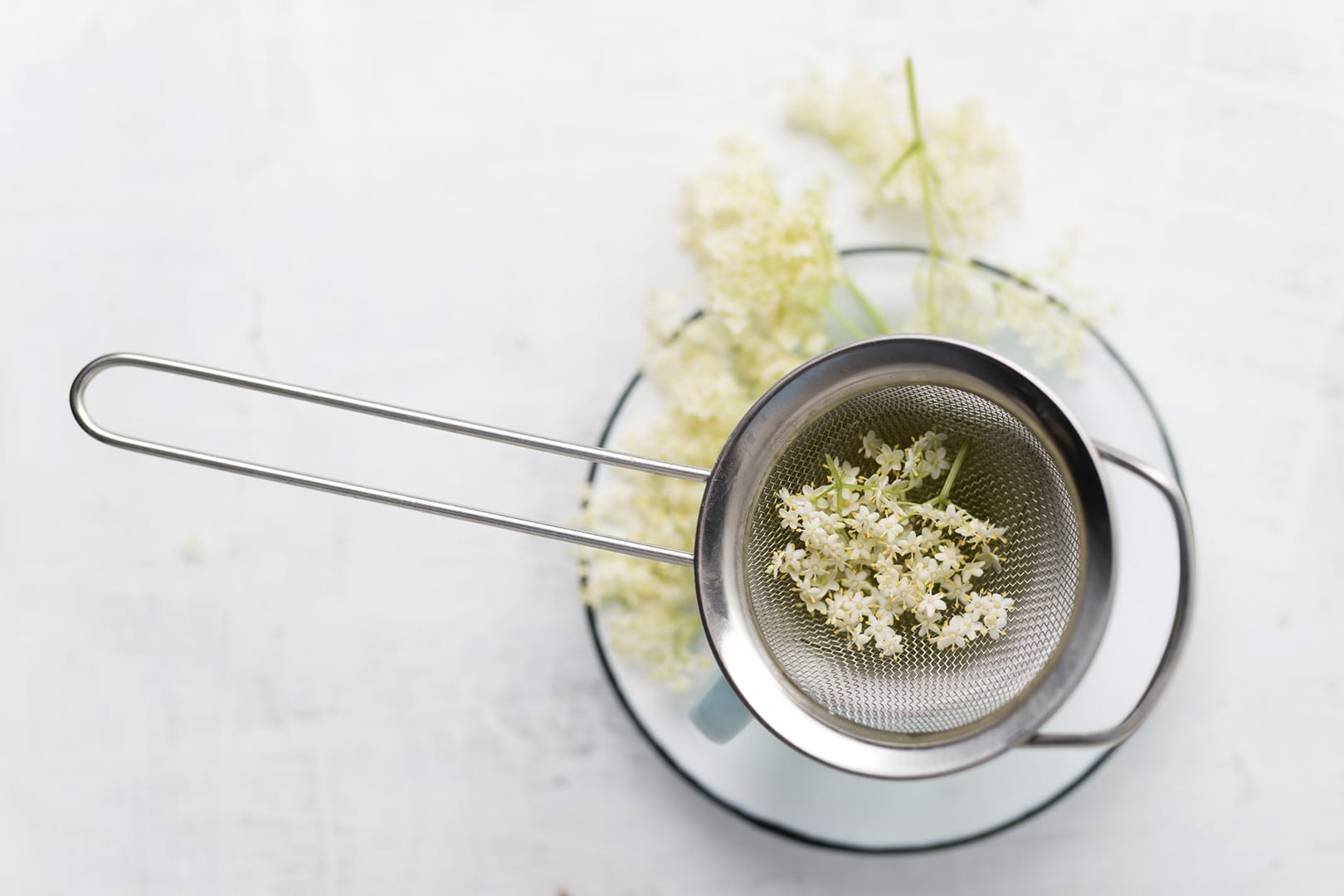
Elderflower Tea and Other Hayfever Treatments
Editor, Melissa Corkhill uses the plants that grow around her home to make medicine for her family.
Elderflower tea strengthens the immune system and helps to prevent hay fever. The flowers can also be eaten fresh to relieve symptoms. Elderflowers have been traditionally used to relieve upper respiratory symptoms such as runny noses, itchy eyes, and sneezing. They act as:
- Natural antihistamines, reducing allergic responses.
- Anti-inflammatories, helping to calm irritated sinuses and mucous membranes.
You can also make a nasal wash to treat sinus problems. Make the tea as below, add a pinch of salt, allow to cool and then sniff the water through each nostril in turn to relieve discomfort.
What You Need:
1 handful elderflower flowers
Boiling water, as needed
How to Make:
Place elderflowers in a mug. Cover with water, just off the boil.
Place a plate over the cup, or cover it, and leave to infuse for 10 minutes.
Drink while still warm.
Enjoy up to 3 cups a day.
You can also make honey from elderflowers; it's a fragrant, soothing natural remedy that combines the anti-inflammatory and antihistamine properties of elderflowers with the antimicrobial benefits of raw honey. Great for hay fever and other seasonal allergies.
Elderflower Honey Recipe
What You Need:
- 5–6 fresh elderflower heads (picked away from roads, ideally early in the day when fragrant)
- 500ml raw local honey (ideally unpasteurised for maximum health benefits)
Optional Additions:
- A slice of lemon or a few lemon zest strips
- A small piece of ginger (for added warmth and immune support)
How to Make:
- Gently shake the elderflower heads to remove insects, but do not wash them — you’ll lose the natural pollen.
- Trim most of the green stems (they can be mildly toxic in large amounts).
- Place the elderflowers in a clean glass jar.
- Pour the raw honey over the flowers until fully covered.
- Use a clean spoon or chopstick to gently stir and remove air bubbles.
- Seal the jar and place it in a sunny window for 1–2 weeks, turning or stirring daily.
- After infusing, strain through a fine sieve or muslin into a clean jar.
- Store in a cool, dark place for up to a year.
How to Use:
- Stir a spoonful into warm (not hot) water or herbal tea.
- Drizzle over yoghurt or porridge.
- Take a teaspoon daily during hay fever season as a preventative.
- Mix with lemon juice and warm water for a homemade allergy tonic.
MORE INSPIRATION
READ Complete Guide to Natural Home Remedies by Melissa Corkhill


